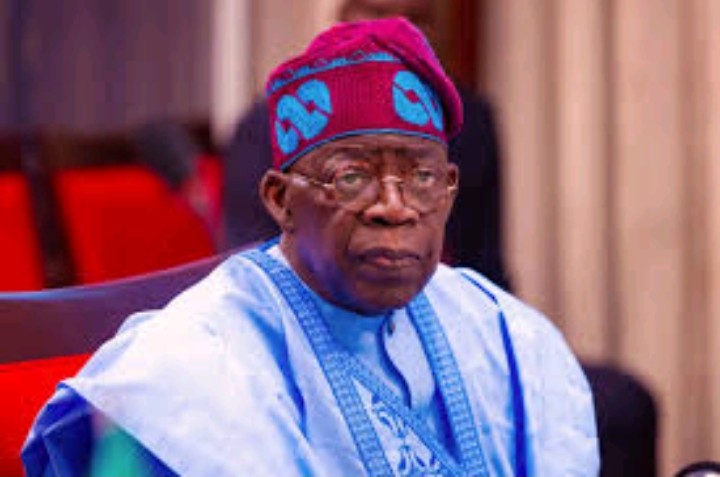
Nigeria has positioned itself at the forefront of Africa’s economic integration efforts, announcing extensive reforms aimed at strengthening border efficiency and boosting intra-regional trade.
The Vice President of the Federal Republic of Nigeria , Kashim Shettima who represented President Bola Ahmed Tinubu stated this during the opening session of The Customs Pact: Partnership for African Cooperation in Trade summit in Abuja, where he represented President Bola Ahmed Tinubu.
The summit, themed “Breaking Barriers, Building Bridges,” convened heads of customs administrations, trade institutions, and continental policy leaders to accelerate the implementation of the African Continental Free Trade Area (AfCFTA).

In his keynote address, the Vice President emphasised that the continent can no longer afford to operate with isolated markets and detached systems. According to him, Africa’s valuable resources, scientific competence and growing talent pool continue to yield less than their full potential because they remain trapped behind slow borders, disjointed regulations and inefficient logistics chains. He noted that the essence of the summit was to collectively challenge the acceptance of sluggish borders as destiny and embrace a modern ambition of seamless continental trade.
The Vice President detailed the bold economic decisions taken by Nigeria since 2023, affirming that the country’s structural reforms are carefully aligned to unlock competitiveness and encourage investment. He explained that the unification of the foreign exchange market, the removal of fuel subsidies to redirect funds to infrastructure, and the modernization of port operations through round the clock digitized clearance were necessary steps to reposition Nigeria for leadership in the AfCFTA era.
He also highlighted the adoption of the Pan-African Payment and Settlement System, which now supports local currency transactions across the continent, and the renewed drive to expand non oil exports so that Nigeria becomes an industrial producer rather than a purely resource dependent economy.

He stressed that the reforms were not implemented in isolation. Instead, they reflect a coordinated strategy in which Nigerian government institutions have been deliberately integrated to support trade. He explained that the Nigeria Customs Service now operates through digital clearance and risk based inspections that reduce human interference and delay. The Nigerian Ports Authority(NPA) has been tasked with raising port productivity and reducing turnaround time. The Central Bank of Nigeria (CBN) ensures stable local currency settlement frameworks for regional trade, while the Standards Organisation of Nigeria aligns product standards with continental requirements to eliminate regulatory barriers. Export focused institutions such as NEPC and NEXIM Bank have been empowered to strengthen export readiness and provide targeted financing for manufacturers, farmers and logistics operators seeking to access African markets.
Shettima also highlighted that Nigeria’s National Single Window a transformative digital platform that will integrate all trade clearance processes on a unified portal. He announced that the first phase will go live in March 2026 and the full rollout will be completed by December 2026. When operational, the platform will ensure that businesses only submit import and export documentation once, while government agencies access and process the information simultaneously.
He projected that this will reduce cargo clearance time from the current average of 21 days to fewer than seven days, thereby dramatically improving Nigeria’s attractiveness as a regional trade hub. Fully aligned with AfCFTA’s digital facilitation framework, the system is expected to strengthen Africa’s collective bargaining power, improve supply chain resilience and boost industrialization.

The Vice President cautioned that Africa must now shift from speeches to measurable action. He said that the continent will not be evaluated by the number of policy communiqués issued, but by real-world outcomes such as faster border crossings, greater efficiency in cargo evacuation, and seamless movement of goods from farms and factories to regional markets. He insisted that the everyday experiences of transporters, manufacturers, informal traders, and exporters must become the true scorecard of continental integration.
He commended the Nigeria Customs Service, along with the AfCFTA Secretariat, Afreximbank, and the World Customs Organization, for charting the path toward a borderless Africa through modernization and collaboration. He called on all heads of customs administrations to ensure that systems deliver what agreements promise, declaring that history will judge the continent not by its intentions but by the efficiency of its borders and the successes of its traders.












Hệ thống thanh toán của 888slot được tích hợp các công nghệ bảo mật hiện đại, đảm bảo rằng mọi giao dịch đều được mã hóa bảo vệ an toàn. Điều này giúp người chơi yên tâm thực hiện giao dịch mà không lo lắng về việc thông tin cá nhân hay tài khoản bị xâm nhập. Với hệ thống thanh toán nhanh chóng, an toàn và tiện lợi, nhà cái đã xây dựng lòng tin cùng sự hài lòng tuyệt đối từ cộng đồng người dùng.
Casino đăng nhập 188v cũng chính là điểm đến không thể bỏ lỡ cho những ai có niềm đam mê đặc biệt với các sòng bạc online. Thương hiệu cung cấp đầy đủ tựa game đẳng cấp mang đậm phong cách Châu Âu gồm cả Baccarat, Dragon Tiger, Xì Dách, Tài Xỉu,… Đảm bảo không thành viên nào sẽ cảm thấy nhàm chán khi tham gia giải trí, chắc chắn chúng tôi sẽ khiến bạn có giây phút cá cược đầy hứng khởi không thể quên.
Sảnh chơi bắn cá tại asia slot365 login tuy ra mắt đã lâu nhưng sức hút mang lại trong cộng đồng cược thủ chưa từng hạ nhiệt. Thành viên tham gia được hóa thân thành những ngư thủ thực thụ, chinh phục đa dạng loài sinh vật biển với nhiều mức độ khác nhau. Anh em cần chuẩn bị các dụng cụ hỗ trợ tương ứng, vũ khí hiện đại để có thể săn về cho mình những boss khủng, cơ hội kiếm số tiền lớn nhé.
Một trò rất được yêu thích tại 66b apk là bắn cá đổi thưởng. Với đồ họa đẹp mắt và lối chơi đơn giản, có thể thư giãn kiếm tiền thưởng thông qua việc săn các loài cá trong game. Nền tảng đã cung cấp nhiều phiên bản bắn cá khác nhau, mỗi phiên bản đều có mức thưởng thử thách riêng, đảm bảo sự phong phú không nhàm chán.
https://t.me/s/iGaming_live/4864
https://t.me/officials_pokerdom/4074
66b apk là một trong những nhà cái trực tuyến nổi bật tại thị trường Việt Nam, chuyên cung cấp các dịch vụ cá cược thể thao, casino trực tuyến, và nhiều trò chơi đổi thưởng hấp dẫn khác. Trong phần này, chúng ta sẽ tìm hiểu về lịch sử hình thành và phát triển của 66b apk, cũng như các giấy phép uy tín đảm bảo cho sự hoạt động của nhà cái này.